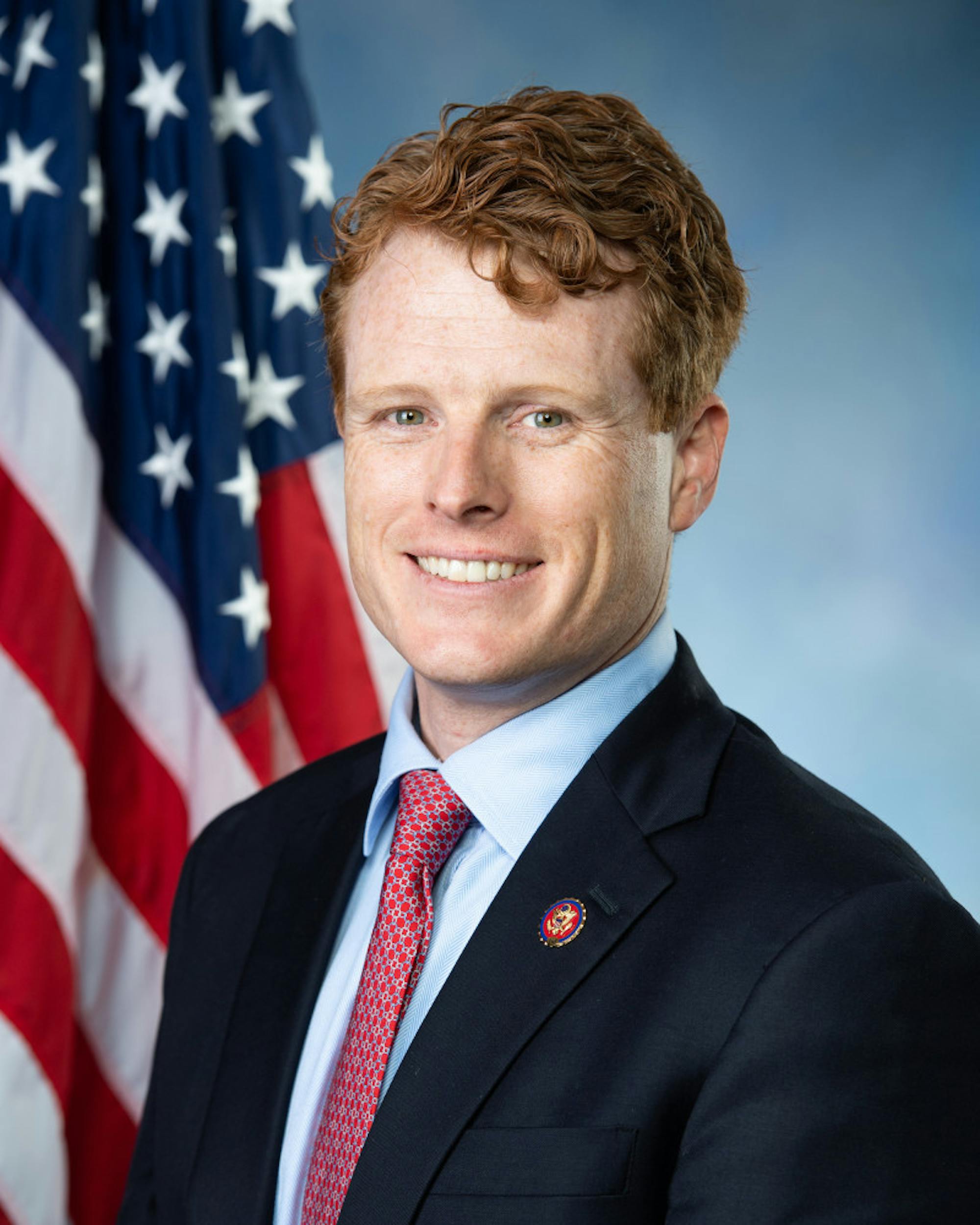U.S. Rep. Joe Kennedy III spoke to the Tufts community in a webinar on Tuesday, Oct. 6, as part of the Tisch College Distinguished Speaker Series. The event was moderated by Alan Solomont, dean of the Jonathan M. Tisch College of Civic Life.
Solomont opened the discussion by asking Kennedy about his recent loss to incumbent Sen. Ed Markey in the Democratic primary for the U.S. Senate in Massachusetts last month.
Kennedy assured Solomont that he entered the race committed to addressing several issues, including those related to the COVID-19 pandemic. He noted that, if he were asked to run again, he would do so in an instant.
“Am I glad I ran? Yes, and I would do it again in a heartbeat,” he said. “Politics is a tough business and you realize certainly as an elected official ... there’s very little of this that you control, and so you do your best to navigate through it.”
Kennedy said he is proud of his campaign and noted that they won 16 out of 21 working-class cities and towns, and the Black and Hispanic vote.
During the conversation, he voiced his support for Democratic presidential candidate Joe Biden and his vice presidential running mate Kamala Harris.
“[I am] looking forward to hitting the road both virtually and physically a bit for Vice President Biden and Kamala Harris,” Kennedy said.
Solomont then asked Kennedy about the challenges he faced launching a campaign in these atypical circumstances.
“What COVID did is limit our ability to [engage with people] ... I think in a challenging position we’ve seen incumbents actually do pretty well across the board,” Kennedy said.
He added that, as the COVID-19 pandemic intensified, his campaign’s pollsters saw a substantial point bump for incumbents. Kennedy attributed this result to people searching for a sense of stability amid a public health crisis.
Solomont also asked the congressman how candidates and campaigns should engage youth voters in the days leading up to the election.
“For most 18, 19, 20 year olds, this country, this world is going to be yours far longer than the people that are running it,” Kennedy said. “Why would you settle for letting the choices of somebody that isn’t going to be here for all that long? Why would you cede your voice?”
Solomont cited a recent poll from the Center for Information & Research on Civic Learning and Engagement that found that 83% of young people between 18 and 24 years of age believe their generation can change the course of the U.S.
Solomont later asked Kennedy about his main concerns as the November election looms near. Kennedy expressed discontent with President Trump’s leadership, especially during the pandemic.
“I don’t have a lot of confidence in the character, integrity of the president,” Kennedy said. “After getting the best health care anyone could get in possibly the world ... to come back and minimize the impacts of a virus.”
Kennedy explained that one of his main concerns is Trump’s intention to discredit the results of the election.
“We need people to have to go out and vote and have confidence in that [election system],” he said.
Solomont then asked Kennedy about the best ways to support small businesses and individuals affected by the pandemic.
"People need a lot of help ... they're going to need help for a long time. I think what many of us have found out ... is just how vicious this pandemic has been," Kennedy said.
After Solomont inquired about bipartisanship in Washington D.C., Kennedy made it clear that it still survives today, despite ongoing partisan rancor on the hill.
"I don't think bipartisanship is dead," Kennedy said. "[My job] is also to try to find, with my Republican colleagues, any opportunity of where our interests overlap."
Solomont also asked Kennedy about his support for ranked-choice voting, which will appear on the November ballot in Massachusetts.
"I support it because it's a great strength in the democratic process," he said.
Kennedy added that ranked-choice voting could have led to a completely different outcome in the 2016 presidential election; he argued that Hillary Clinton could have won were it not for votes cast in support of Jill Stein.
Solomont later referenced the Supreme Court Term Limits Act, which was recently introduced by Kennedy and, if implemented, would establish an 18-year term limit for Supreme Court justices.
"[The Act] lowers the temperature of these confirmation fights, it means it regularizes that process," he said.
The conversation then opened to questions from the audience.
First-year Arnav Patra asked Kennedy how young progressives can make their goals more appealing to traditional Democratic politicians.
Kennedy underlined that it is important to engage in dialogue and contact local representatives.
"Engage with your local elected officials and whether that's here at Tufts or back home ... write them a letter, request a meeting and talk to them about what it is you're seeking," he said.






